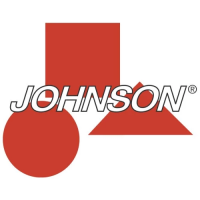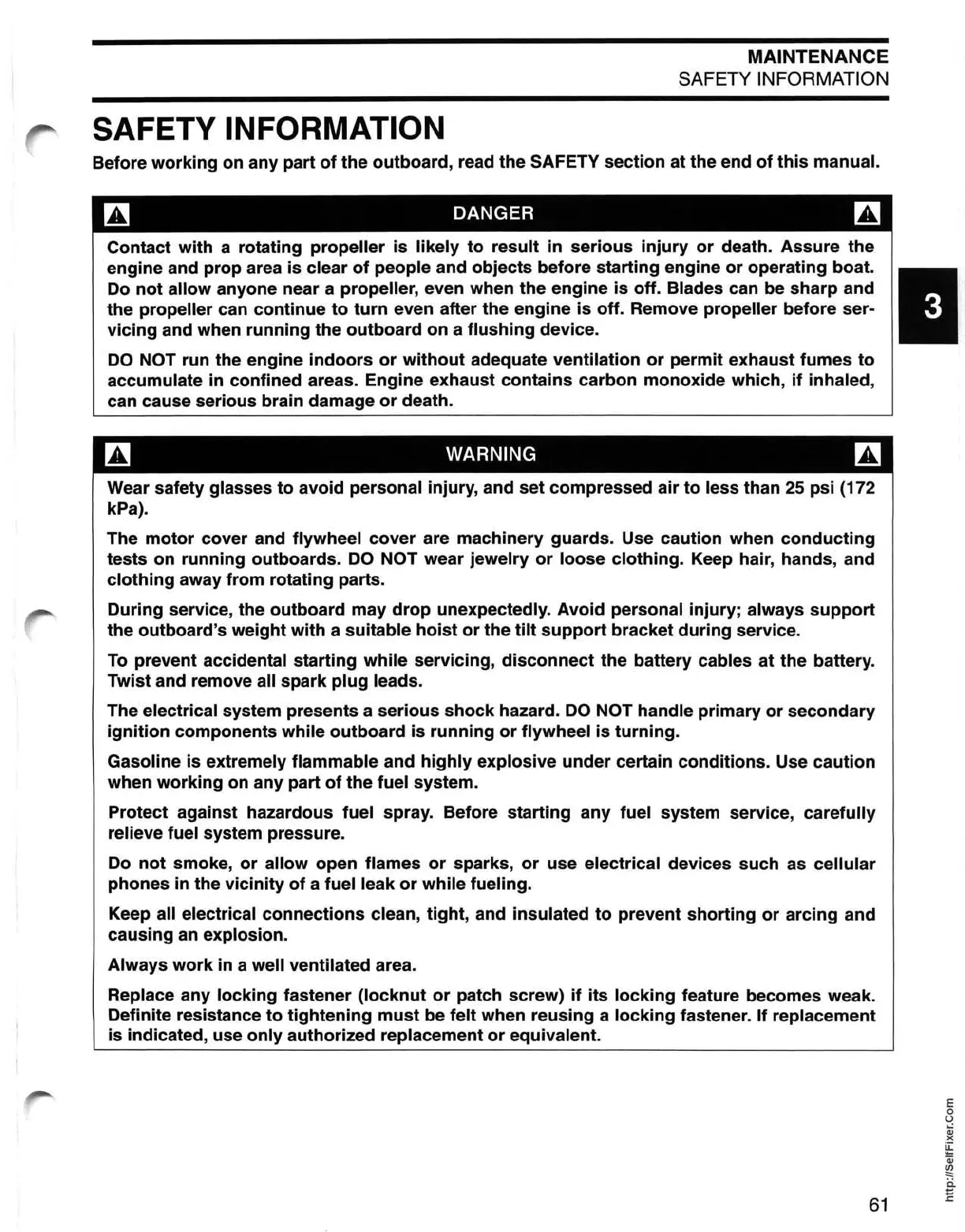SAFETY INFORMATION
MAINTENANCE
SAFETY INFORMATION
Before working on any part
of
the outboard, read the SAFETY section at the end
of
this
manual.
~
DANGER
~
Contact
with
a rotating propeller
is
likely
to
result in
serious
injury
or
death. Assure the
engine and prop area
is
clear
of
people and objects before starting engine
or
operating boat. 3
Do
not
allow anyone near a propeller, even when the engine
is
off. Blades can be
sharp
and
the
propeller can continue
to
turn
even after the engine
is
off. Remove propeller before ser-
vicing and when running the outboard
on
a flushing device.
DO
NOT run the engine
indoors
or
without
adequate ventilation
or
permit exhaust fumes
to
accumulate in confined areas. Engine exhaust contains carbon monoxide which,
if
inhaled,
can cause serious brain damage
or
death.
~
WARNING m
Wear safety glasses
to
avoid personal injury, and set compressed air
to
less than
25
psi (172
kPa).
The
motor
cover and flywheel
cover
are machinery guards. Use caution when
conducting
tests on running outboards.
DO
NOT wear jewelry
or
loose clothing. Keep hair, hands, and
clothing
away from rotating parts.
During service, the outboard may
drop
unexpectedly. Avoid personal injury; always
support
the outboard's weight
with
a suitable
hoist
or
the
tilt
support
bracket during service.
To
prevent accidental starting
while
servicing,
disconnect
the battery cables at the battery.
Twist and remove
all spark
plug
leads.
The electrical system presents a serious
shock
hazard.
DO
NOT handle primary
or
secondary
ignition
components while outboard
is
running
or
flywheel
is
turning.
Gasoline
is
extremely flammable and
highly
explosive
under
certain conditions. Use caution
when working on any part
of
the fuel system.
Protect against hazardous
fuel spray. Before starting any fuel system service, carefully
relieve fuel
system pressure.
Do
not
smoke,
or
allow open flames
or
sparks,
or
use electrical devices such as
cellular
phones in the vicinity
of
a fuel leak
or
while fueling.
Keep all electrical connections clean, tight, and insulated
to
prevent shorting
or
arcing and
causing an
explosion.
Always
work
in a well ventilated area.
Replace any locking fastener
(locknut
or
patch screw)
if
its
locking
feature becomes weak.
Definite resistance
to
tightening
must
be felt when reusing a
locking
fastener. If replacement
is
indicated, use
only
authorized replacement
or
equivalent.
61
E
o
U
Qj
)(
~
Qj
~
ii
E

